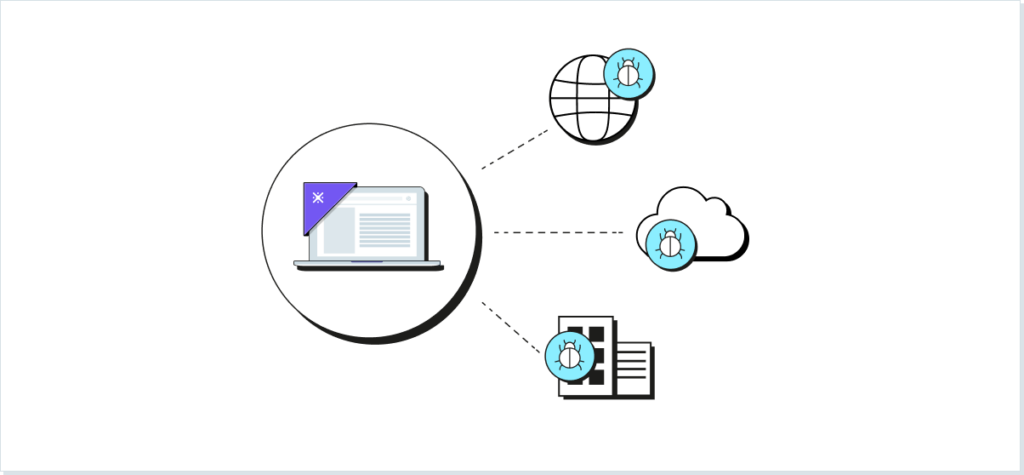In today’s digital landscape, cybersecurity threats loom larger than ever before. As organizations and individuals alike navigate the complexities of an interconnected world, safeguarding sensitive data and systems against cyber-attacks has become paramount. Remote Browser Isolation (RBI) has emerged as a powerful solution, offering a robust defense mechanism against a wide array of cyber threats. However, as cybercriminals continue to evolve their tactics, so too must our defenses. Enter the next generation of RBI, poised to revolutionize the cybersecurity landscape.
Remote Browser Isolation: A Primer
Before delving into the advancements of the next generation of RBI, it’s essential to understand the fundamentals of this innovative technology. Remote Browser Isolation works by executing web browsing sessions away from the endpoint device, typically in a secure cloud environment. This means that any web content accessed by users is isolated from their local systems, effectively creating a barrier between potentially malicious content and sensitive data.
Traditionally, RBI solutions have relied on virtualization or containerization techniques to achieve this isolation. While effective, these approaches often faced challenges such as resource overhead, latency issues, and scalability limitations. As cyber threats grew in sophistication, it became evident that a more advanced and streamlined approach was necessary.
The Evolution of RBI
The next generation of RBI builds upon the foundation laid by its predecessors while incorporating cutting-edge technologies to address existing limitations. One such advancement is the adoption of browser-native isolation techniques. Instead of relying on virtual machines or containers, modern RBI solutions leverage the native security features of web browsers to achieve isolation.
By harnessing the capabilities of modern web browsers, such as Google Chrome or Mozilla Firefox, these solutions can create secure sandboxes for each browsing session in real-time. This not only reduces resource overhead and latency but also ensures seamless integration with existing workflows. Furthermore, browser-native isolation allows for greater scalability and flexibility, making it well-suited for enterprise environments.
Another key innovation in the next generation of RBI is the integration of artificial intelligence and machine learning algorithms. These technologies enable RBI solutions to proactively identify and mitigate emerging threats in real-time. By analyzing user behavior, web content, and network traffic patterns, AI-powered RBI systems can detect anomalies indicative of malicious activity and take preemptive action to neutralize potential threats.
Furthermore, AI and machine learning algorithms can continuously adapt and evolve based on new threat intelligence, ensuring that organizations remain one step ahead of cybercriminals. This dynamic threat detection capability is crucial in today’s rapidly evolving threat landscape, where traditional signature-based approaches often fall short.
The Benefits of Next-Generation RBI
The adoption of next-generation RBI offers several benefits for organizations seeking to enhance their cybersecurity posture:
1. Enhanced Security: By isolating web browsing sessions from endpoint devices, next-generation RBI solutions mitigate the risk of malware infections, phishing attacks, and other web-based threats, protecting sensitive data and systems from compromise.
2. Improved Performance: Browser-native isolation reduces resource overhead and latency compared to traditional virtualization or containerization techniques, ensuring a seamless browsing experience for users without sacrificing security.
3. Proactive Threat Detection: The integration of AI and machine learning enables RBI solutions to detect and mitigate emerging threats in real-time, providing organizations with proactive defense against cyber-attacks.
4. Scalability and Flexibility: Next-generation RBI solutions are designed to scale effortlessly to accommodate growing business needs while remaining flexible enough to integrate with existing IT infrastructure and workflows.
5. Compliance Readiness: By isolating web browsing sessions in a secure cloud environment, next-generation RBI solutions help organizations meet regulatory compliance requirements and industry standards related to data protection and privacy.
As cyber threats continue to evolve in complexity and sophistication, organizations must adapt their cybersecurity strategies accordingly. The next generation of Remote Browser Isolation represents a significant step forward in this regard, offering enhanced security, improved performance, and proactive threat detection capabilities.
By harnessing browser-native isolation techniques and integrating artificial intelligence and machine learning algorithms, next-generation RBI solutions provide organizations with a powerful defense against a wide range of cyber threats. As businesses strive to safeguard their sensitive data and systems in an increasingly interconnected world, embracing the future of RBI is not just advisable—it’s imperative.
Need Help Now? Just Ask!
Whether you’re having an IT emergency, facing a new cyber threat, looking for technology consulting, or just ready for a new digital plan, we’re here to help. Contact Elliman Technologies LLC now.

